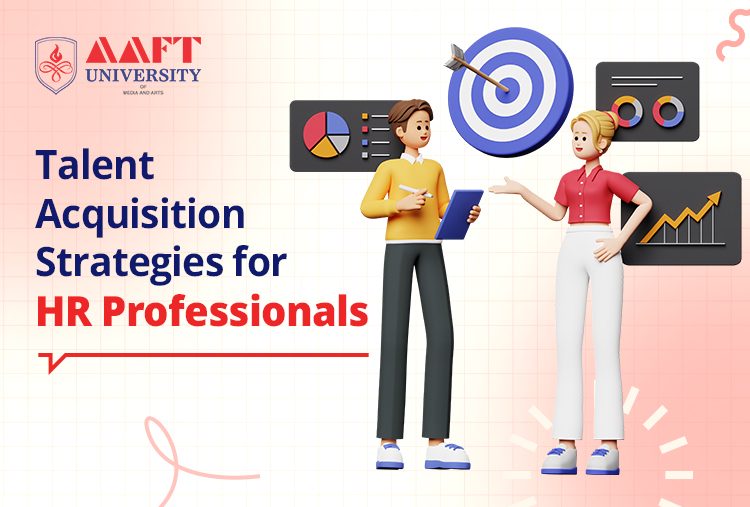Master the art of talent acquisition with proven strategies! Explore this insightful article to learn how HR professionals can attract and acquire top talent effectively. From workforce planning and employer branding to targeted sourcing and data-driven selection, uncover the key tactics that will give you a competitive edge in talent recruitment. Whether you’re a talent acquisition lead or an HR professional, this article will provide valuable insights to enhance your recruitment efforts and build a strong employer brand. Don’t miss out on unlocking the secrets to successful talent acquisition!
Introduction:
Talent acquisition plays a crucial role in any organization’s success. It involves the process of identifying, attracting, and acquiring top talent to meet business objectives. In today’s competitive job market, HR professionals must stay updated with effective talent acquisition strategies. In this blog, we will explore the factors of talent acquisition, understand its significance, and discuss key strategies for HR professionals to excel in talent recruitment and talent acquisition lead roles.
What is Talent Acquisition?
Talent acquisition is the strategic approach to identifying, attracting, and acquiring skilled individuals who align with an organization’s values, culture, and goals. It goes beyond traditional recruitment methods by focusing on long-term talent needs, nurturing relationships, and building a strong employer brand.
Factors of Talent Acquisition:
A) Workforce Planning: Effective talent acquisition begins with a comprehensive understanding of an organization’s current and future talent needs. HR professionals must collaborate with hiring managers to analyze workforce requirements, identify skill gaps, and develop a proactive recruitment plan.
B) Employer Branding: A strong employer brand is crucial for attracting top talent. HR professionals should work on enhancing the organization’s reputation, emphasizing its values, culture, and benefits, and showcasing employee success stories. Utilizing various channels such as social media, career websites, and employee referral programs can amplify the employer brand.
C) Candidate Experience: A positive candidate experience is key to attracting and retaining talent. HR professionals should focus on streamlining the application process, providing timely updates, and offering personalized interactions. Feedback and transparency are essential, even for unsuccessful candidates, as it impacts the overall perception of the organization.
Talent Recruitment Strategies:
A) Targeted Sourcing: HR professionals should adopt a multi-channel sourcing approach, utilizing job boards, social media platforms, professional networks, and talent databases. Tailoring recruitment efforts based on the desired skills and experience ensures a focused candidate pool.
B) Data-Driven Selection: Leveraging data analytics and talent assessment tools enables HR professionals to make informed decisions during candidate screening and selection. Objective evaluation criteria, such as competency-based interviews and psychometric assessments, help identify the best-fit candidates.
C) Collaboration with Hiring Managers: Building strong partnerships with hiring managers is vital for effective talent recruitment. HR professionals should involve them in the selection process, understand their specific requirements, and maintain open communication channels to ensure alignment and efficiency.
Talent Acquisition Lead Strategies:
A) Leadership Development: HR professionals in talent acquisition lead roles should prioritize leadership development programs within the organization. Identifying high-potential employees, providing mentoring opportunities, and offering targeted training helps nurture future leaders from within the talent pool.
B) Succession Planning: Anticipating future talent needs and developing a robust succession plan is crucial for long-term organizational success. HR professionals should identify key positions, assess potential successors, and create talent development plans to fill critical roles when vacancies arise.
C) Continuous Improvement: Staying updated with emerging trends and technologies in talent acquisition is essential for HR professionals in leadership roles. They should invest in their professional development, attend industry conferences, and network with peers to exchange best practices and gain fresh insights.
Conclusion:
Talent acquisition is a strategic process that requires HR professionals to adapt and employ effective strategies to attract and acquire top talent. By understanding the factors of talent acquisition, embracing innovative recruitment techniques, and honing leadership skills, HR professionals can contribute significantly to their organizations’ growth and success. By focusing on targeted sourcing, optimizing the candidate experience, and leveraging data-driven selection methods, HR professionals can build high-performing teams and ensure a competitive edge in the ever-evolving job market.
Related Topics:

